Case series: Group KAP for eating disorder patients with comorbid depression & anxiety
Journal of Eating Disorders | Published 6 May 2022
This project has been near and dear to my heart—so it’s exciting to finally see the results published in the Journal of Eating Disorders. Thanks to all my co-collaborators, including Dr. Adele Lafrance and the amazing folks at Center for Change. Check it out below!
Background: Depression and anxiety outcome measures, safety/tolerability, patient satisfaction, and ease of implementation of group-based ketamine-assisted psychotherapy (G-KAP) delivered to patients in intensive residential eating disorder (ED) treatment were assessed.
Case presentation: This study reports on fve participants with a diagnosis of an ED and comorbid mood and anxiety disorders who received weekly intramuscular ketamine injections in a group setting over 4 weeks. Measures of anxiety (GAD-7) and depression (PHQ-9) were administered pre-dose, 4-h post-dose, and 24-h post dose. Four of the 5 participants experienced clinically signifcant improvements on the PHQ-9 score (i.e., change greater than 5) while 2 of the 5 participants experienced clinically signifcant improvements on the GAD-7 score (i.e., change greater than 4) from pre-dose to 24-h post-dose after the last ketamine session. Dosing sessions were well tolerated, and no serious adverse events were reported. Clinical observations and participant reports corroborated improvements in depression and anxiety symptoms, good tolerability of ketamine treatment, and practical implementation of the G-KAP protocol in a residential ED treatment center.
Conclusions: This study suggests the potential utility of G-KAP as an adjunct to intensive, specialized ED treatment. Overall, this novel, cross-diagnostic intervention warrants future research to further explore its appropriateness in a treatment setting.
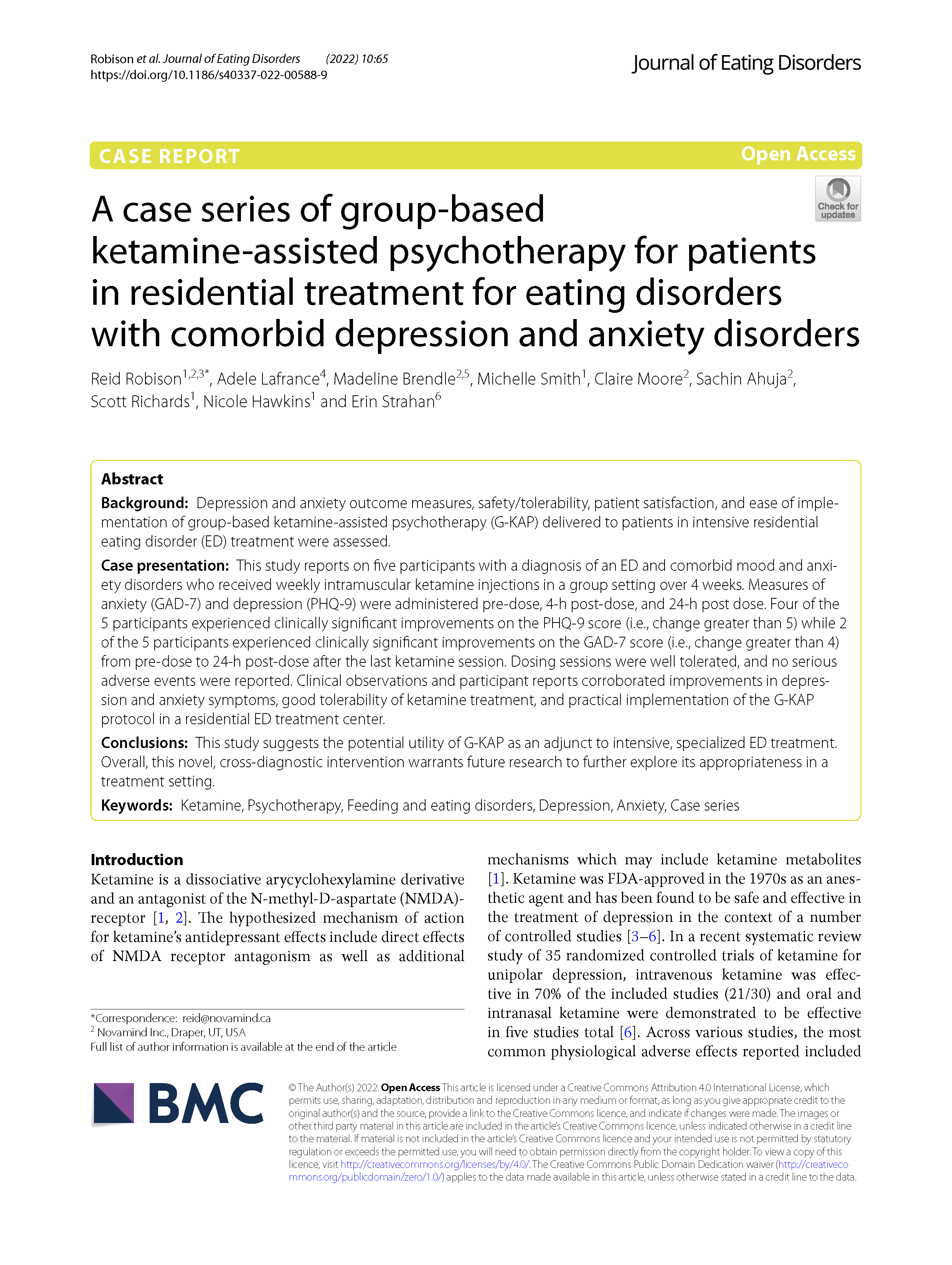
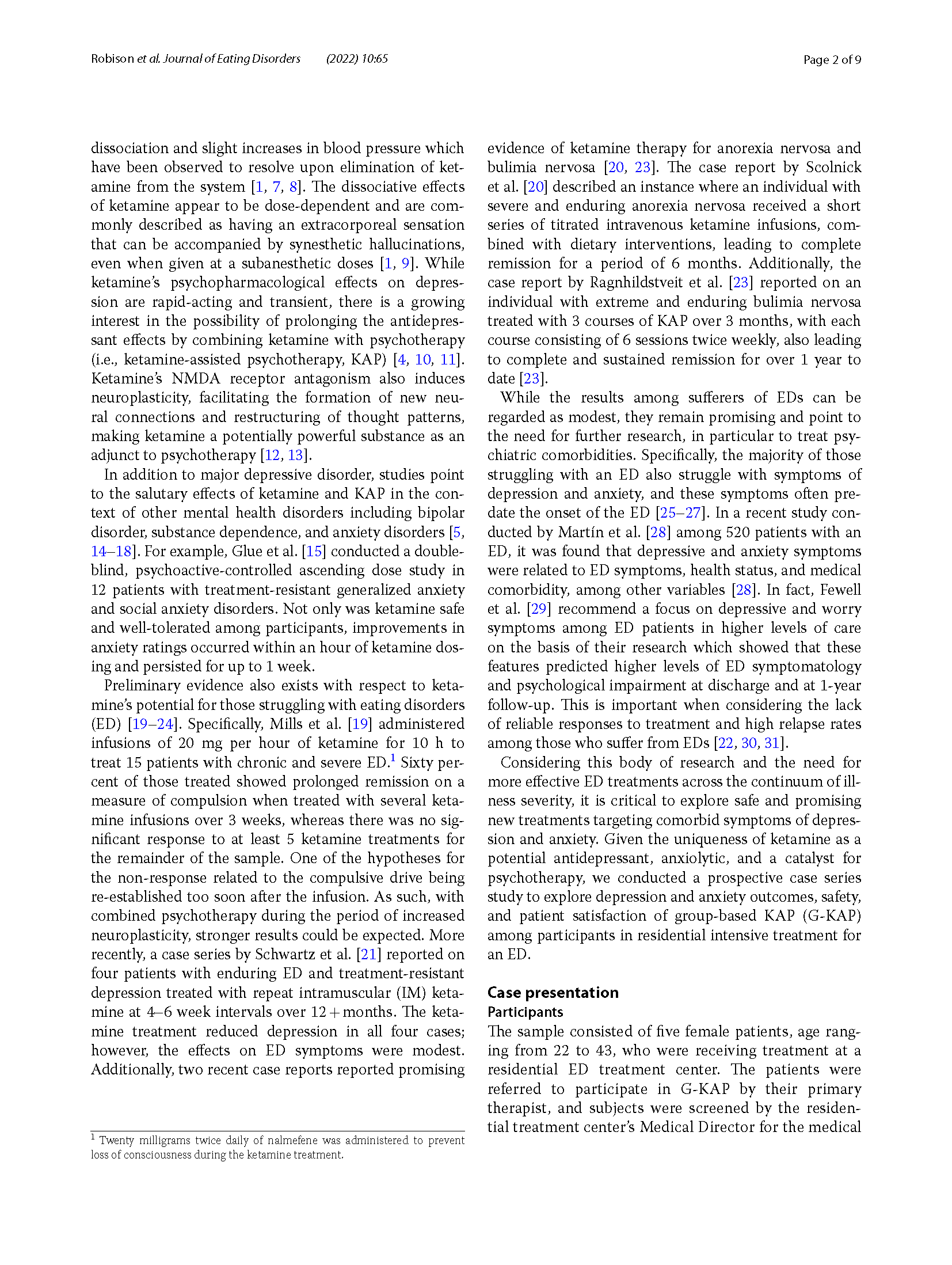
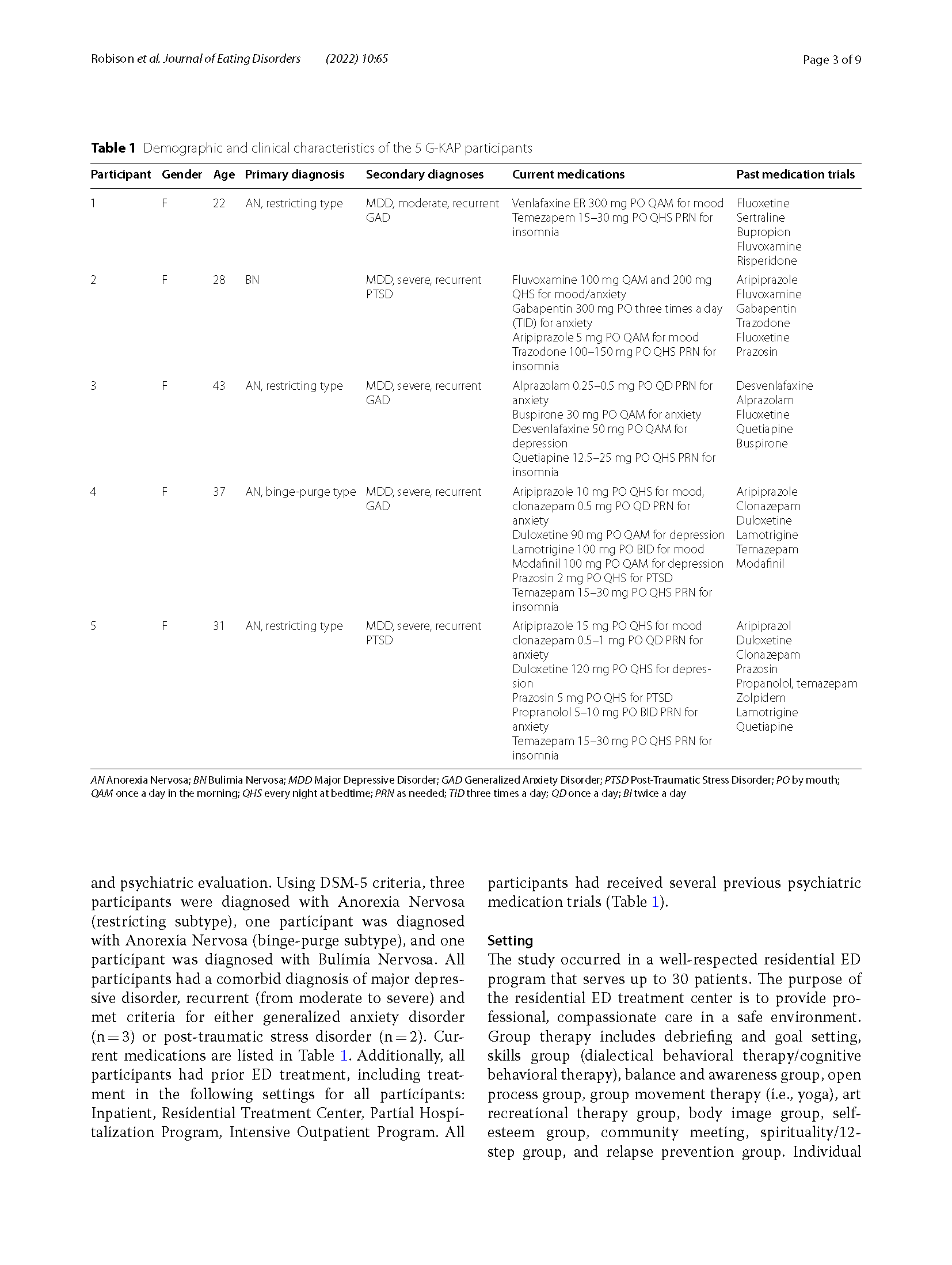
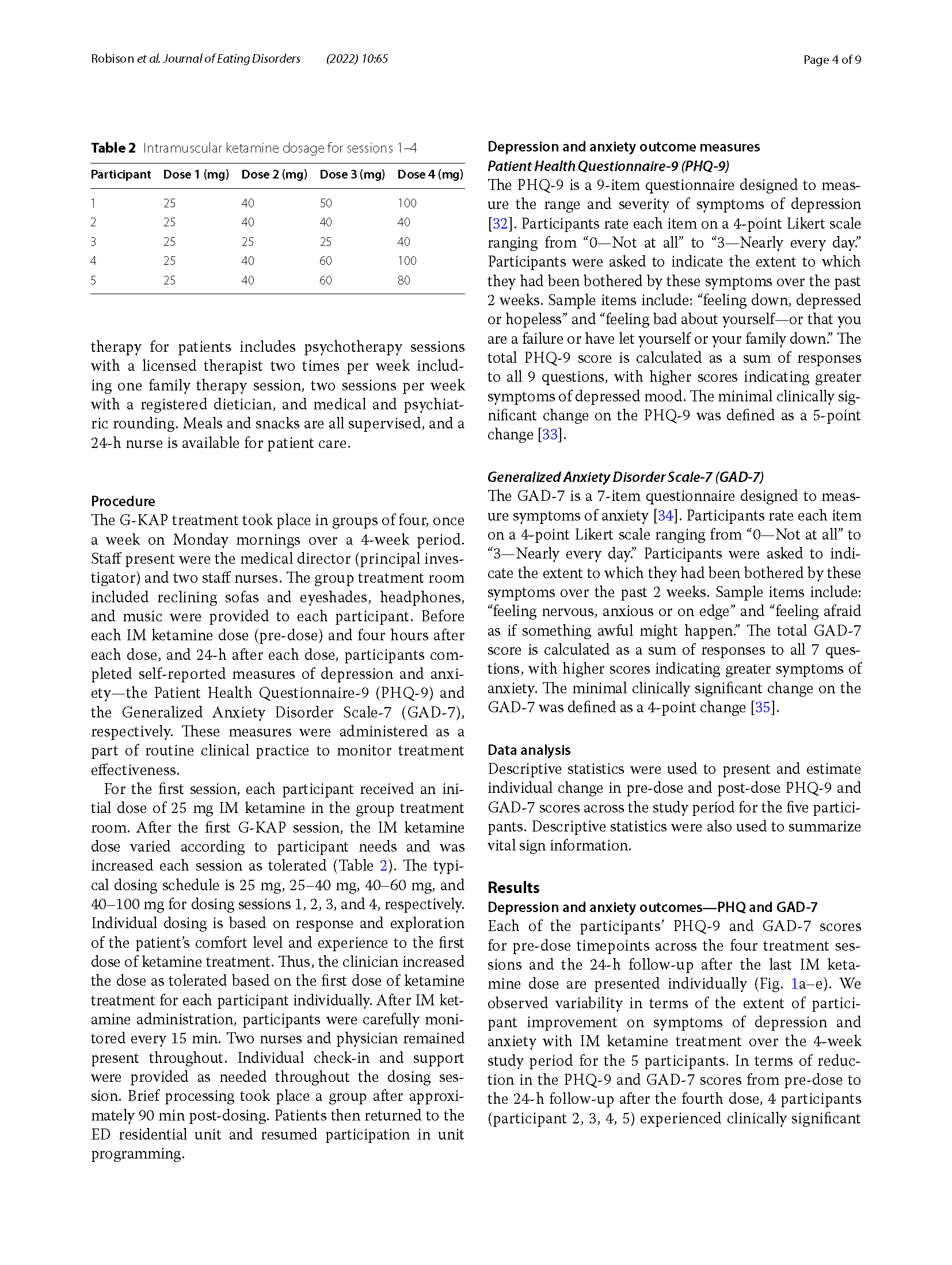
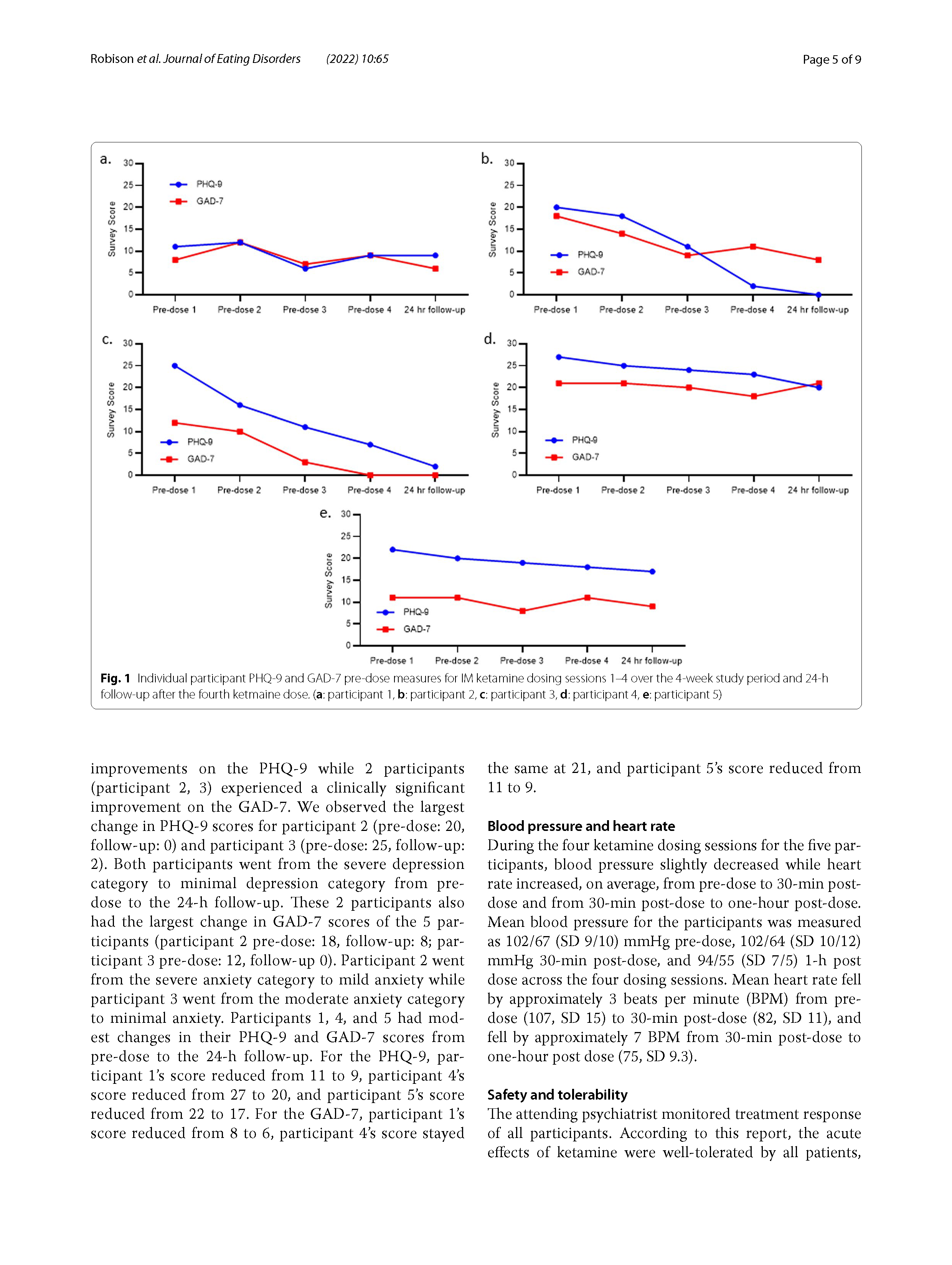
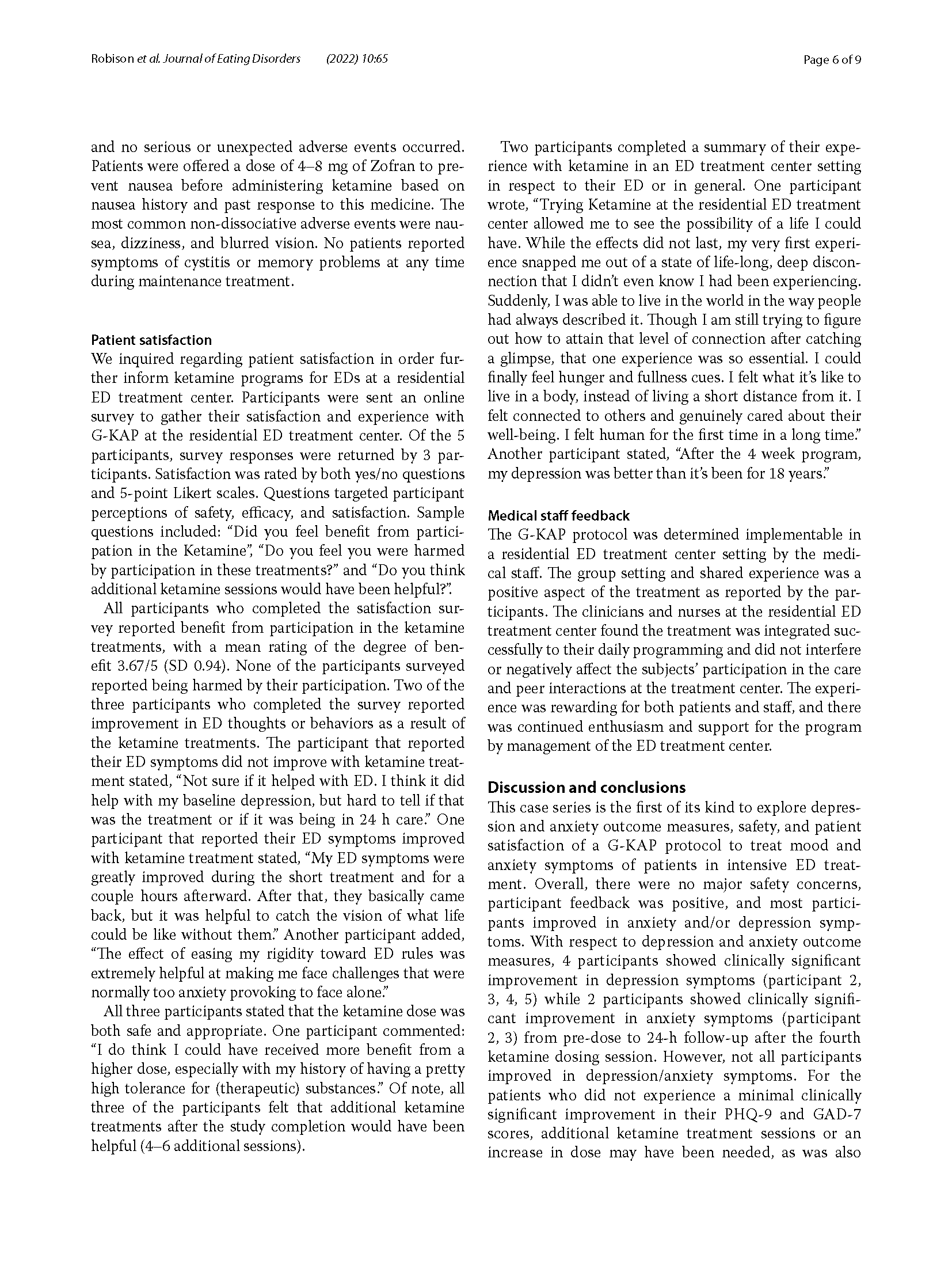
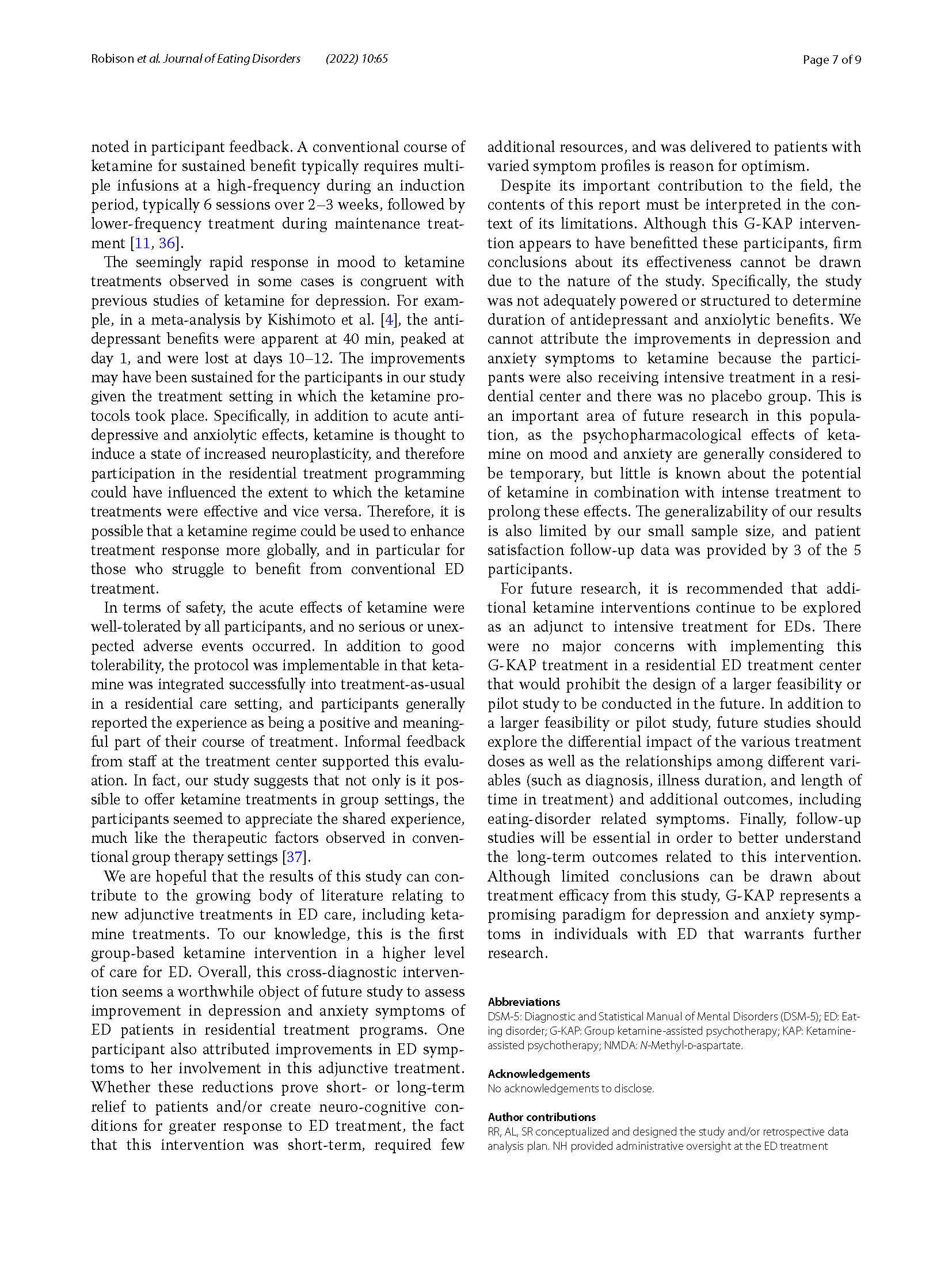
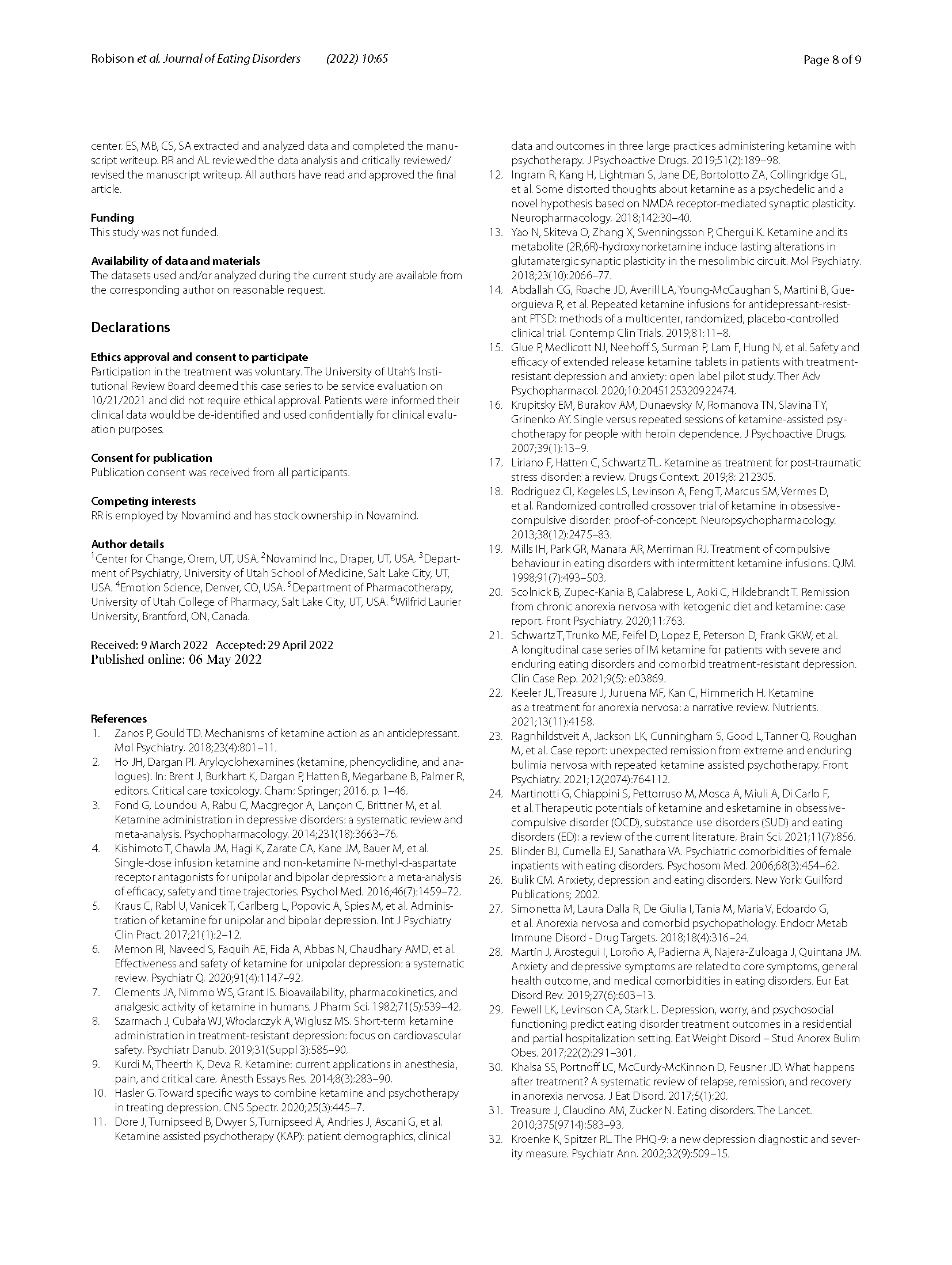
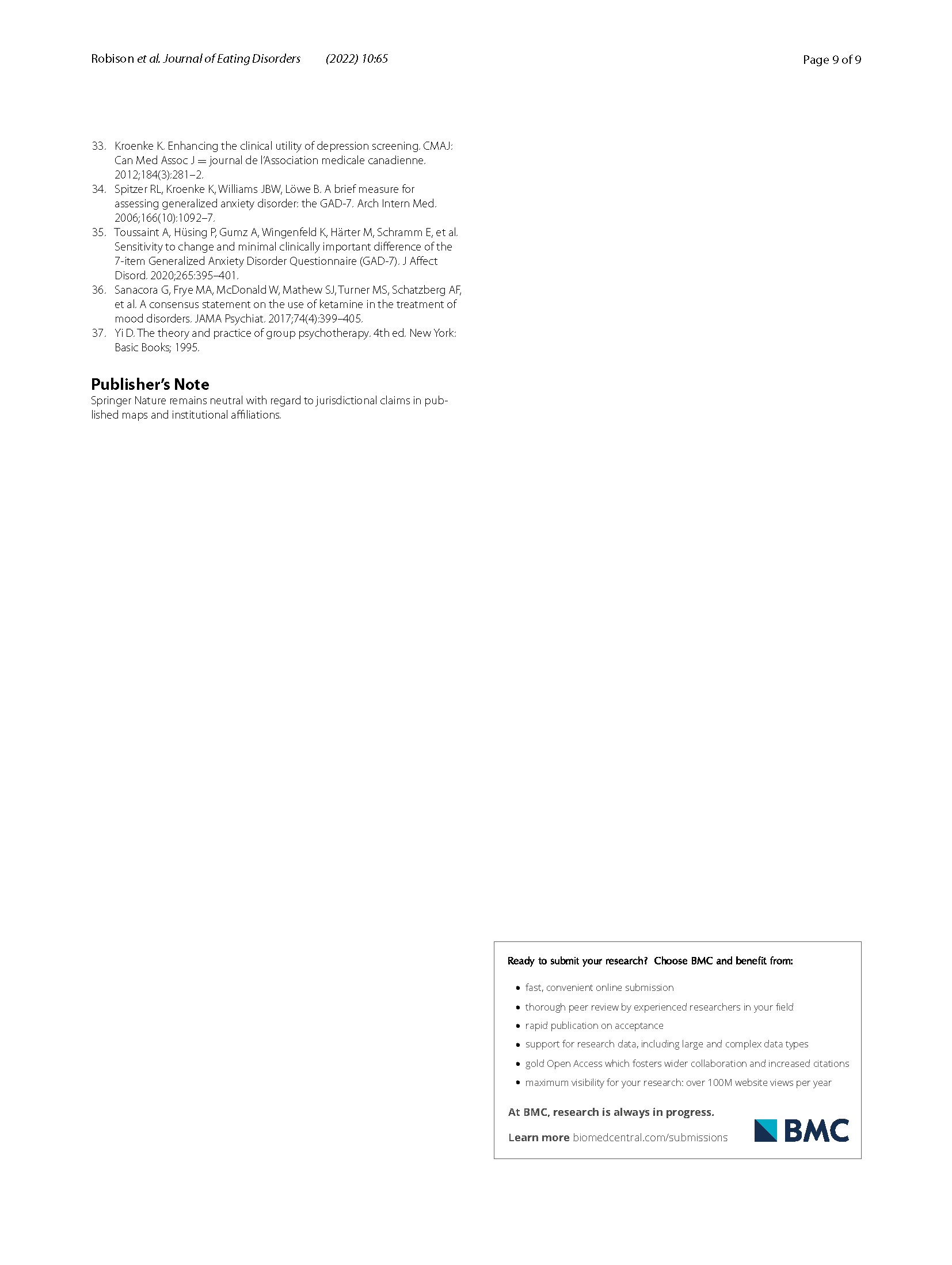
Citation
Robison, R., Lafrance, A., Brendle, M. et al. A case series of group-based ketamine-assisted psychotherapy for patients in residential treatment for eating disorders with comorbid depression and anxiety disorders. J Eat Disord 10, 65 (2022). https://doi.org/10.1186/s40337-022-00588-9

